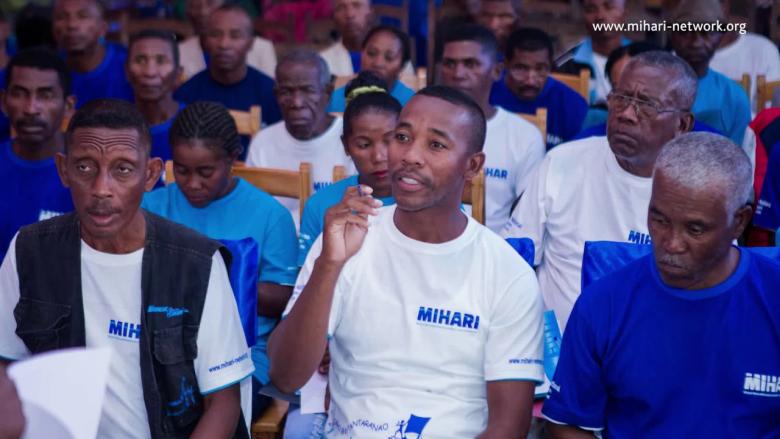MItantana HArena Ranomasina avy eny Ifotony – MIHARI, the Locally Managed Marine Areas (LMMAs) Network of Madagascar, was created in 2012 from the initiative of 18 LMMA communities from the southwest of Madagascar. Since then, it has kept growing and evolving. The network aims at supporting the LMMAs by building local leadership, sharing best practices, securing financial sustainability and making fishers’ voices heard.
It is organised in a network structure, that allows national coordination and regional implementation.
Recently in 2020, MIHARI has become a formal entity with an independent status, that enables it to receive and manage grants directly.
The Malagasy government doesn’t have yet formally embedded an LMMA Ministerial Decree in its legislation, but it has been involved in MIHARI’s various fora and decision-making processes.


